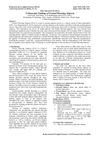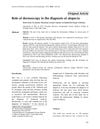Clinical Features of Primary Cicatricial Alopecia in Chinese Patients
January 2014
in “
Indian Journal of Dermatology, Venereology and Leprology
”

TLDR Chinese patients with primary cicatricial alopecia often have folliculitis decalvans, benefit from treatment, but may experience relapse, with dermoscopy being a useful diagnostic tool.
In the retrospective study from 2014, researchers examined 59 Chinese patients with primary cicatricial alopecia (PCA) and found a neutrophilic to lymphocytic cicatricial alopecias ratio of approximately 1.3:1. Folliculitis decalvans was the most common disorder, accounting for 40.7% of cases, and lichen planopilaris was less common in this cohort compared to Western populations, at only 3.4%. Dermoscopy was a valuable diagnostic tool, showing absent follicular openings in most cases. Treatment improved hair loss areas, particularly in patients with discoid lupus erythematosus, folliculitis decalvans, and dissecting cellulitis, but relapse occurred in 13.6% of patients after stopping therapy. Factors such as long disease duration, large areas of hair loss, and shorter treatment courses contributed to relapses. The study emphasized the importance of dermoscopy in diagnosing PCA and assessing disease activity, and noted that better outcomes were associated with certain conditions, although relapses were common due to various factors including non-compliance and financial constraints.






